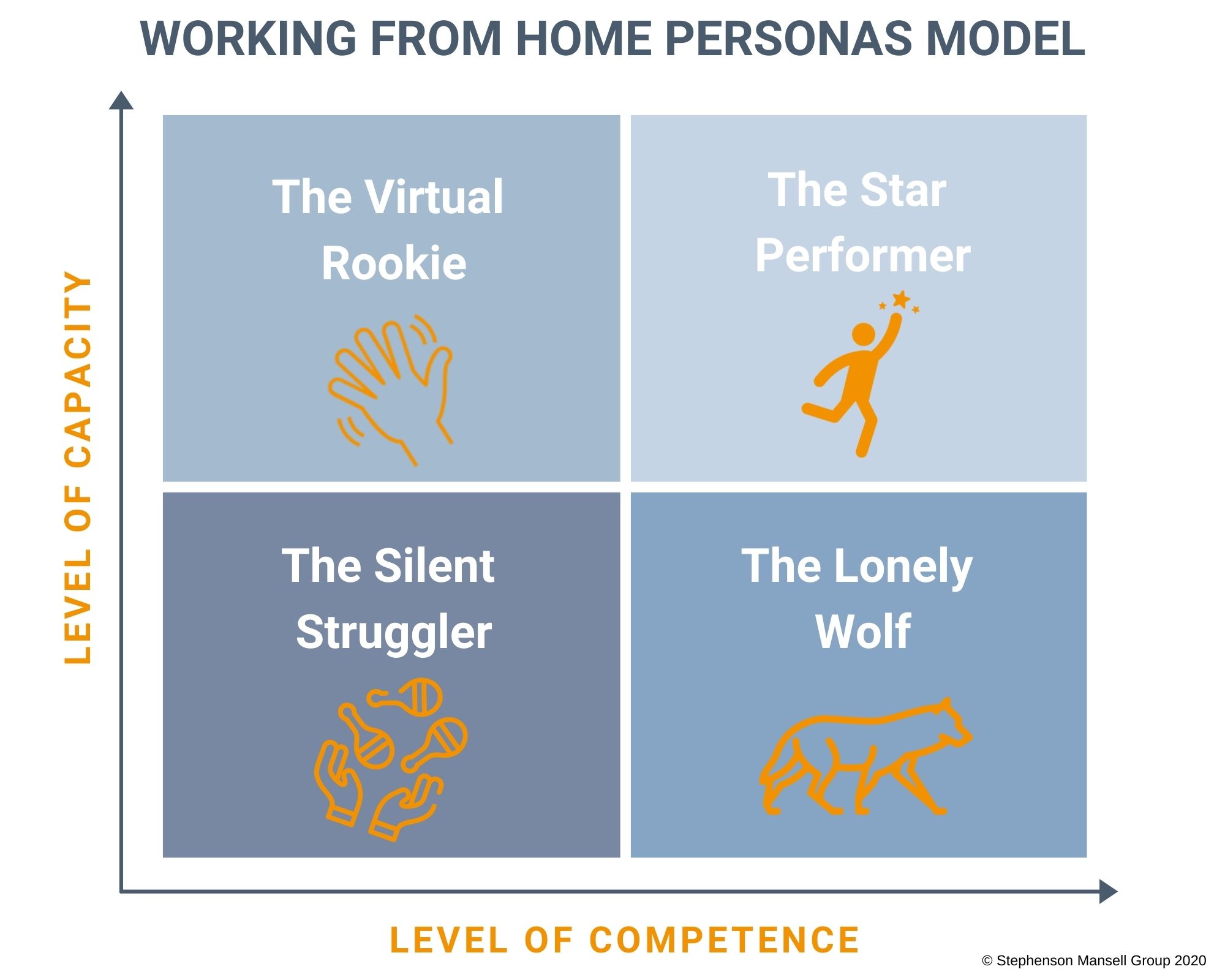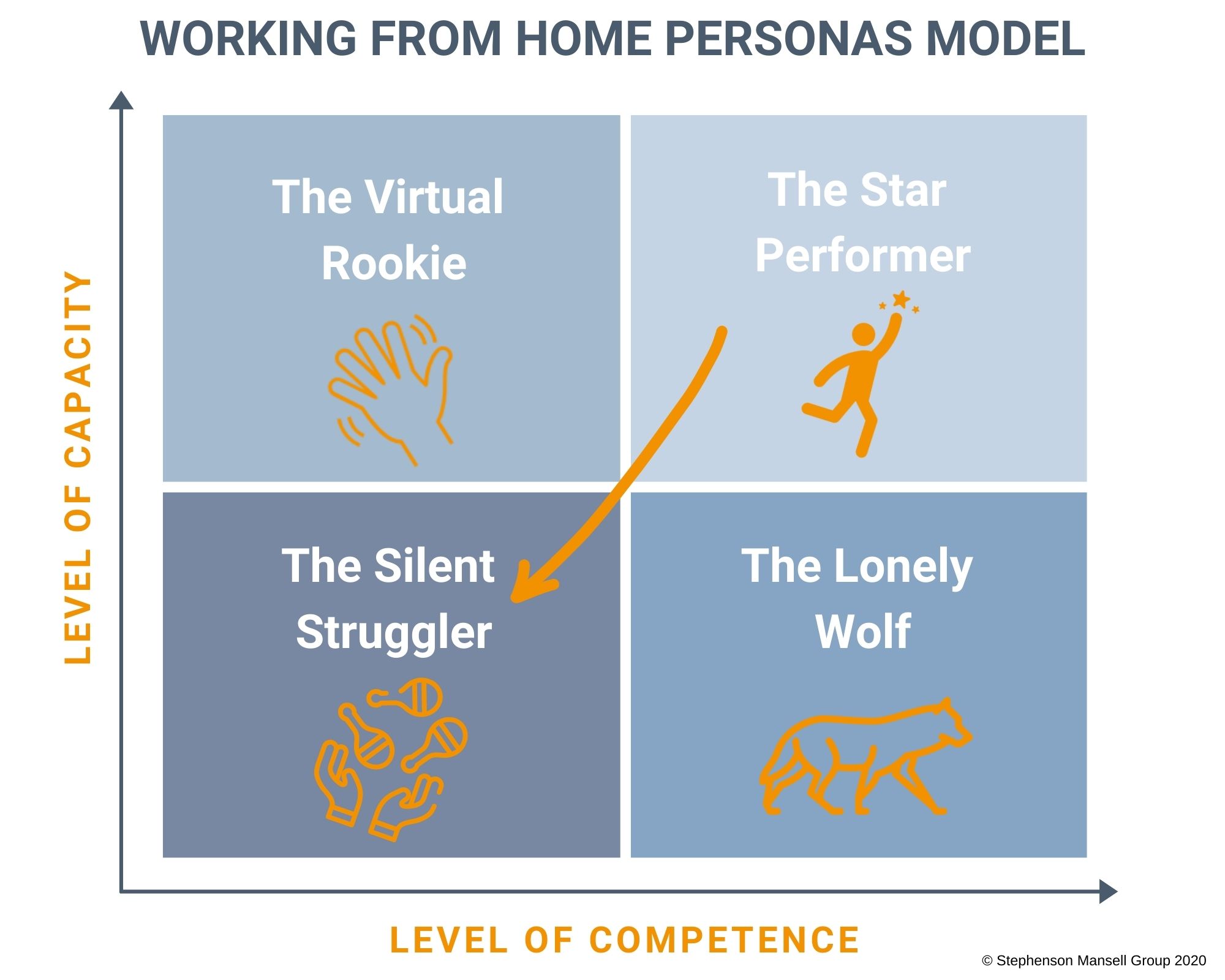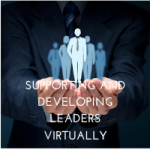HOW LEADERS CAN OVERCOME THEIR WORKING FROM HOME TRUST ISSUES
The Art of Leadership Newsletter
Health experts say they are now confident that a COVID-19 vaccine will be developed within a year. That’s highly encouraging. However, the twelve-month timeline does mean that the hybrid working-from-home model will be in place for many organisations well into 2021, with some organisations like Atlassian, announcing their people can work from home permanently if they like. Given this reality, leaders need to shift their thinking from how do we make this work to how do we make this work really well. In this month’s blog we explore this question and look at how leaders can build trust in this new normal by understanding two crucial drivers of performance: capacity and competence.
Wishing you the very best of health.
Regards,
Virginia
How Leaders Can Overcome Their Working From Home Trust Issues

One of the silver linings of the dark cloud that is COVID-19 is the accelerated change towards new ways of working. In a matter of weeks, organisations around the world have upended the traditional commute-to-the-office model and shifted to remote or hybrid approaches. In the immediate wake of this global social experiment, organisations reported that engagement and productivity levels remained high – and in some cases, actually increased.
Now, research shows cracks appearing in the work from home model, with some studies showing engagement levels falling,
Pre-COVID, one of the handbrakes to remote working was the elephant-in-the-room question asked by senior leaders behind closed doors: can we trust our people to work from home? Now, five months in, that question is resurfacing.
The question might seem a little uncaring and authoritarian, but let’s give those asking it the benefit of the doubt. Let’s assume that what they are really saying, in the midst of an unparalleled economic crisis, is this: To ensure our financial wellbeing, how can we ensure that everyone is performing at their best in this working from home, virtual, environment?

To address this underlying question, we need to think about trust along two dimensions:
- Trust in ‘capacity’: the extent to which leaders can trust that each person has the physical, emotional and mental capacity to reliably deliver on outcomes when working from home, in a virtual environment.
- Trust in ‘competence’: the extent to which leaders can trust that each person has the skills, understanding and knowledge (of systems, processes, culture etc.) to be able to deliver on outcomes while working from home, in a virtual environment.
When we frame trust along these two dimensions, the idea of trust shifts from being binary (do I trust someone, yes or no?) to a ‘frame’ through which to offer the support and guidance each person needs to feel engaged and effective:
Working From Home Personas Model:
Let’s examine four personas that capture the essence of what happens when capacity, competence, or both, fall short when people are working from home – and what to do about it.
The Silent Struggler
Low levels of capacity, low levels of competence
Here, low capacity might mean low ‘physical capacity’. For example, imagine a young parent working from home while trying to juggle their time between parenting demands and work deliverables. Low capacity might also mean low ‘emotional capacity’. For example, consider a team member who is in a difficult relationship at home and has reached their emotional tipping point. These scenarios could also impact a person’s ‘mental capacity’, i.e., their ability to stay focused and on task.
Competence: When you add to these scenarios an absence of the unscheduled, across-the-desk conversations that help address in-the-moment questions, clarify an issue, solve a problem or navigate through an internal process or system, working from home can become a struggle.
How to support the Silent Struggler:
- Provide safe, non-judgemental listening and reassurance
- Mentor, give direction and offer practical support
The Lonely Wolf
Low levels of capacity, high levels of competence
Human beings are social creatures, some more than others. The Lonely Wolf represents the usually expressive persona who thrives in the office environment. They draw energy from the social and professional interactions that take place moment-to-moment in the office. They like ‘running with the pack’. Like a wolf dislocated from its companions, these individuals can feel lonely and lost when working from home for extended periods. Even though they have high levels of competence, the social isolation is gradually sapping them of motivation.
How to support the Lonely Wolf
- Ask coaching questions to help them identify and unlock intrinsic motivators
- Provide inspiration through purpose and vision
The Virtual Rookie
High levels of capacity, low levels of competence
Working from home in a virtual environment requires a distinct set of mindset competencies to perform effectively. For example, it requires high levels of self-direction, increased tolerance levels for uncertainty and a high degree of comfort with ambiguity. The virtual working environment also demands the ability to communicate effectively through the digital medium. The Virtual Rookie could be someone who, despite being highly competent in their role, has not made the transition from the office to working from home easily. It also refers to an otherwise highly competent new starter who does not have enough knowledge or understanding of organisational norms or peer networks to follow through on a deliverable from the isolation of the virtual world.
How to support the Virtual Rookie
- Identify gaps in knowledge or understanding
- Provide coaching support or practical structures as required
The Star Performer
High levels of capacity, high levels of competence
Can a leader trust a star performer to deliver on outcomes? Yes. However, the question to consider when someone is in this quadrant is: how long can they sustain their performance levels? Are they working at capacity physically, emotionally or mentally? And if that is the case, will there be a gradual drop in performance, or one that is sudden and dramatic?
The other critical point to bear in mind is that our personas model is ‘outcome’ specific. In other words, a person may be a ‘Star Performer’ for one outcome, and perhaps a ‘Silent Struggler’ for another.
How to support the Star Performer
- Help them manage capacity and delegate tasks
- Provide coaching support to help them identify blind spots

In summary, our working from home personas model is not a framework to put team members in boxes. Far from it. It is to help leaders overcome trust issues that are likely founded in real pressures to motivate their teams to be at their best in exceptionally tough times. By going beyond a simplistic view of whether or not a leader can trust a team member to deliver on an outcome, they can reframe their thinking and provide the right leadership support at a time when people need it the most, and recognise that the same individual may benefit from different support at different times.
About the Author:
Mehul Joshi is a Senior Partner and Head of the Leadership Practice at the Stephenson Mansell Group.
What’s On
 LUNCH AND LEARN WEBINAR:
LUNCH AND LEARN WEBINAR:
SAVE THE DATE – Overcoming Working From Home Trust Issues
Don’t miss our next Lunch and Learn Webinar facilitated by Mehul Joshi and joined by a panel of experts, as they explore in depth our Working From Home Personas.
LIVE: Monday 31st August 2020 12.00-1.00pm AEST
Click here to register for free
This Series allows you to connect with both thought leaders and peers to discuss the big ideas and issues in a collaborative and inspiring way. The sessions include facilitated discussion, followed by smaller group breakouts, and conclude with group sharing.
Missed one of the sessions or want to go back to review what was discussed?
Download our past session recordings HERE
Executive Presence and Impact Workshop with Peter Kingston – In Person
 Following strict COVID safe guidelines, we will be running our popular Executive Presence and Impact Program in Sydney.
Following strict COVID safe guidelines, we will be running our popular Executive Presence and Impact Program in Sydney.
Peter’s ability to engage with his audience and personally encourage participants to step out of their comfort zone and challenge the way they present themselves, makes this a program not-to-be-missed.
SYDNEY: 12th November 2020
 Explore our new virtual resources and programs to support leaders through COVID-19
Explore our new virtual resources and programs to support leaders through COVID-19
The dramatic impacts of COVID-19 on organisations and their people has meant that leaders have had to find a new level of agility and adaptability.
Our COVID-19 resources including dedicated Webinars, Downloadable Resources, One-on-One and Team Virtual Programs have been specifically developed to help you and your organisation meet changing needs.
Explore our new virtual resources to support leaders through COVID-19
Missed a webinar or want to go back for a refresher?
Access all our past webinar recordings, slides and supporting downloads from the past months covering a range of topics from Strategic Leadership, to Communicating in a Virtual World, Leading through Uncertainty, to Innovation and Future-Proofing Leadership.
View our past webinar recordings and see what’s coming up next
What’s Trending in Leadership

Organisational Culture And Resilience: Lessons From A Crisis
Review some of the lessons learned as a result of COVID-19, through recent research undertaken to explore organisation culture, response and resilience in light of crisis.
SMG Recommends
In need of some inspiration…
 How Leaders can Adapt to Uncertain Times
How Leaders can Adapt to Uncertain Times
HR Leaders have navigated the muddy water of COVID-19 for the past few months, addressing changing needs of the business. Outlined here, are strategies to ensure future readiness, for when change comes knocking again.










